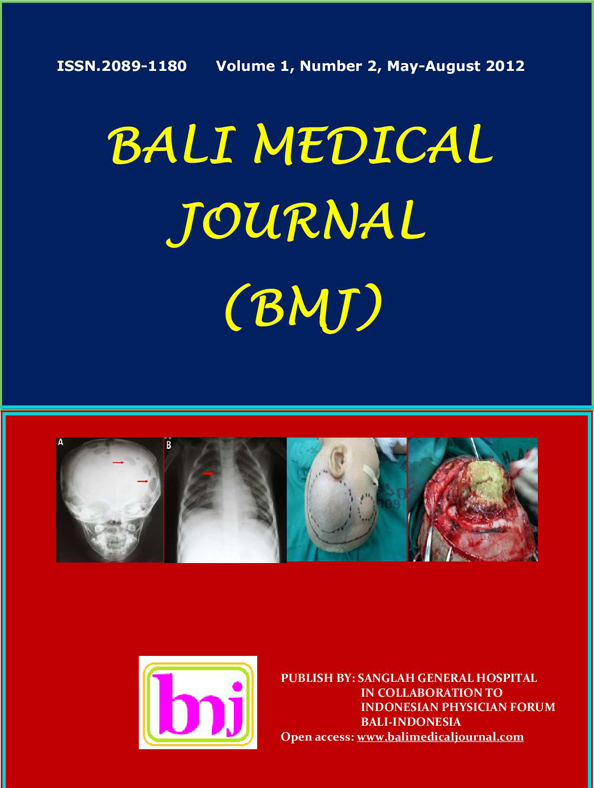The Effect of Phytosterol on Serum Beta-Carotene Concentration of Hypercholesterolaemic Subjects
Abstract
Objective: Treatment of optic neuritic as recommended by the Optic Neuritic Treatment Trial (ONTT) was intravenous methylprednisolon followed by oral prednisone. This study aims to describe characteristics and response to intravenous methylprednisolon followed by oral prednisone treatment of optic neuritic patient in Sanglah General Hospital Denpasar.
Method: The study was a parallel clinical trial, forty subjects with hipercholesterolaemia were selected using certain criteria. The subjects were divided into two groups using block randomization. Twenty subjects in phytosterol group received phytosterol 2x0.6 g/day and dietary counseling (P), while twenty subjects in counseling group received only dietary counseling (C). Serum total cholesterol and ?-carotene concentration were assessed on day 0 and 42. Before and after treatment, dietary intake were assessed with 2x24 hour recall methods.
Results: Seventeen subjects in P group and fourteen subjects in C group completed the study. There was no significant differences in baseline data both groups. After 42 days treatment, there was no significant differences in nutrients intakes in two groups except for ?-carotene and phytosterol intakes in P group. There was a 9.17% significant reduction in serum total cholesterol concentration in P group while no change was observed in the C group (p<0.05). Serum ?-carotene concentration was increased significantly in P group, 0.44±0.376 ?mol/L to 0.536(0.21–1.95) ?mol/L, while there was no significant increased in C group, 0.493±0.349 ?mol/L to 0.56±0.33 ?mol/L. There was a significant difference in serum ?-carotene concentration after adjusted with serum total cholesterol concentration between two groups (p<0.05).
Conclusions: Dietary advice to consume an additionally of high ?-carotene sources when consuming phytosterol 2x0.6 g/day for 42 consecutive days maintains serum ?-carotene concentration while lowering serum total cholesterol concentration significantly in hypercholesterolaemic subjects, proved by statistical analysis.


